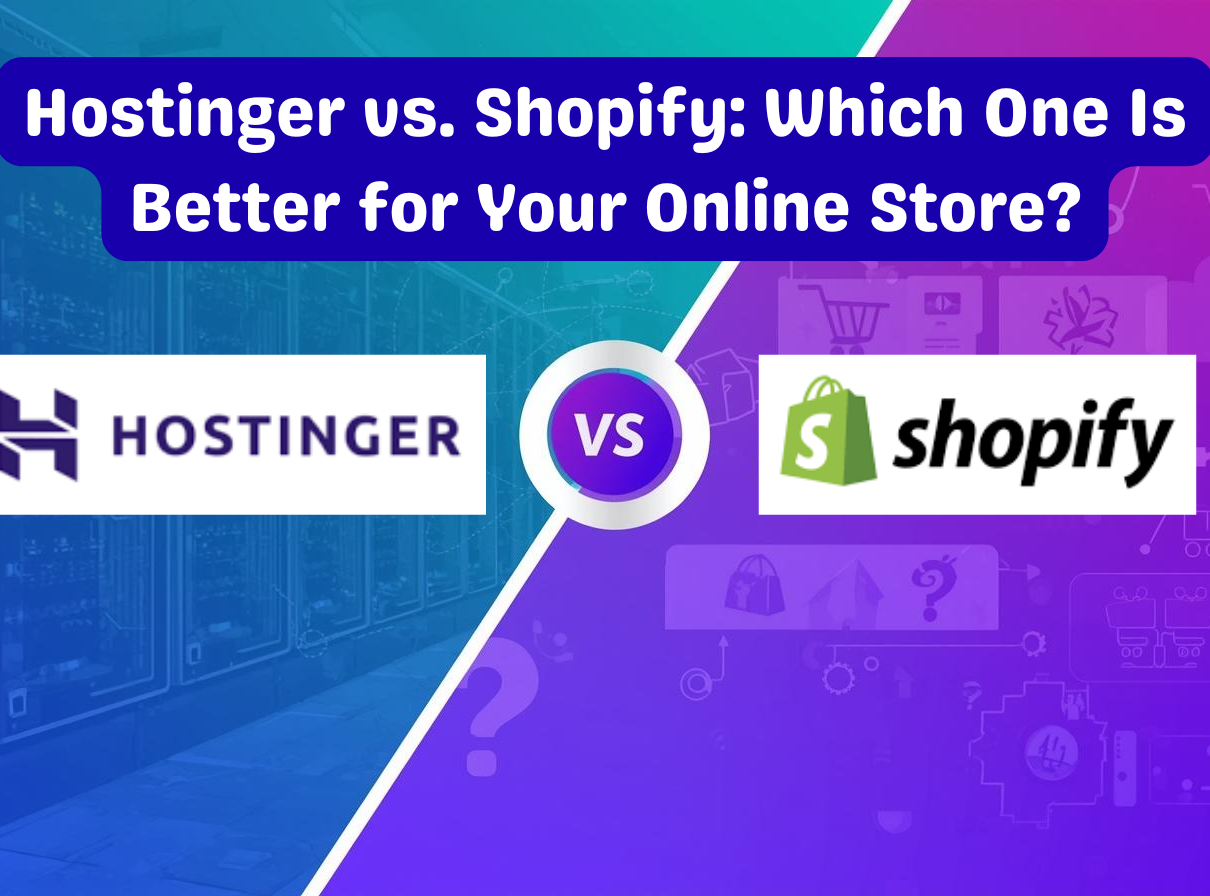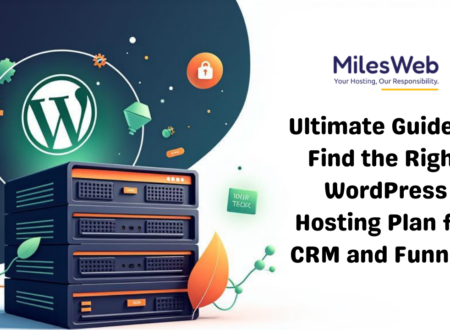Starting an online store? Remember that the decision to opt for a platform is one of the most defining steps of your eCommerce journey. A conversation that comes with looking for the best online store hosting platform is Hostinger vs. Shopify alternative.
While both names are reputable, they attract different types of customers. Hence, users need a reliable and top-performing Shopify and Hostinger alternative that can cater to varied business needs.
As of now, both web hosting plans seem to be viable. Let us compare their benefits and drawbacks, providing a final verdict on which one is better when you are starting an online store.
What Are Hostinger and Shopify? Quick Intro
Shopify is a specialized eCommerce platform as a service (PaaS); it focuses solely on selling. Everything is included, including site design, inventory management, payment processing, and shipping integrations. Moreover, there’s no need for plugins or external tools.
On the other hand, Hostinger is classified as a web hosting company. You will have to set up your store using a CMS like WordPress + WooCommerce (or another eCommerce platform). This provides you with more options, but at the same time increases your workload.
In short:
Shopify is an online store builder with all-in-one features, focusing on ease of use.
Hostinger is a web hosting provider that also offers DIY store setup on CMS.
1. Plug-and-Sell vs. Build It Yourself Business Models: Ease of Use
Shopify stands out as the best option for starting a dropshipping business. Managing products, customers, marketing, sales, and everything else related to your store while having everything at your disposal gives Shopify a big edge over all other options in the industry. Not to mention, e-commerce websites don’t have to worry about updating, security, or hosting, as these are all managed services.
With Hostinger, you have to install WordPress (or any other CMS), configure WooCommerce, and handle plugins, site security, backups, and so on. It brings the advantage of complete control.
Note: Hostinger can be efficient with proper tech support, while beginners likely prefer Shopify. However, many developers choose CMSs for the flexibility and prefer MilesWeb for managed WooCommerce hosting. This way, the technical burden is lifted, without the expensive cost of Shopify.
2. Pricing: Which One’s More Wallet-Friendly?
- Shopify Plans (Monthly):
Basic: $39/month
Shopify: $105/month
Advanced: $399/month
Plus, additional app costs and transaction fees unless you utilize Shopify Payments.
- Hostinger eCommerce Setup:
Hosting Plan: Starts at ~$2–$3/month
Domain: Free (first year)
WordPress + WooCommerce: Free
Premium themes/plugins: Optional
Note: At Hostinger, you are mostly paying for hosting. Everything else, such as WooCommerce and many other plugins, is free or cheap. Hostinger allows for learning while saving, though the work incurred may not appeal to everyone. Shopify is complete leisure with hands-off work around, but it is a pricier option.
3. Design & Customization: Total Freedom vs. Templates
Shopify has gorgeous and responsive themes, but they come with limitations. So if you are interested in making changes, be prepared to modify Liquid code or purchase additional plugins.
With Hostinger, you get complete control over WordPress. Your store can be customized to any desired design and functionality using thousands of available themes and plugins.
Note: For those who prefer flexibility and control over a design without the need for external applications, Hostinger stands out. Many store owners who start with Shopify eventually switch to open platforms like WooCommerce—often hosted on MilesWeb—when they outgrow the constraints of Shopify.
4. Scalability and Performance
Shopify supports new growth without any hassle, so if you plan on expanding, your store is sorted. No concerns about server space, load speed, and updates. On the flip side, their pricing model and ecosystem lock you in.
Shopify handles everything—SSL, PCI compliance, backups, and fraud analysis. You focus on selling.
With Hostinger, you have capped plans that can be upgraded with traffic but also have strong performance due to LiteSpeed servers, caching, and CDN support.
That said, for serious scaling, many growing stores opt for cloud-based or managed VPS hosting for better reliability. That’s where hosting providers like MilesWeb offer a smarter solution, granting platform-free scalability.
With Hostinger, you have full control. Thus, you can install your own SSL, set your backups and customize services managed by the customer.
Both platforms offer support around the clock, but of different types:
Shopify: Help related to e-commerce only.
Hostinger: Technical assistance with the hosting and the CMS.
Note: Shopify wins hands down for no-thought maintenance. Hostinger (or MilesWeb, which provides managed WordPress support) is a great option if some configuration is desired.
Final Verdict: Hostinger or Shopify
- Choose Shopify if:
A store that is ready to sell comes without the need for a line of code.
Monthly fees are acceptable in exchange for comfort.
Fast, easy, and simple onboarding is prioritized over heavy customization options.
- Choose Hostinger if:
Full control over the site is greatly desired.
The budget is lean.
There’s a need for setup assistance.
Conclusion: What’s Right for You?
There’s no universal solution. The needs of your business, your budget, and how comfortable you are with technology will all influence the decision. If you’re undecided, try both platforms—Shopify has a free trial, and Hostinger has a money-back guarantee. A lot of users try to self-host with platforms like Hostinger until they realize they need the support and flexibility that come with managed hosting. MilesWeb is a great example for eCommerce stores that use WooCommerce and don’t want basic shared hosting but don’t need the pricey Shopify model.





